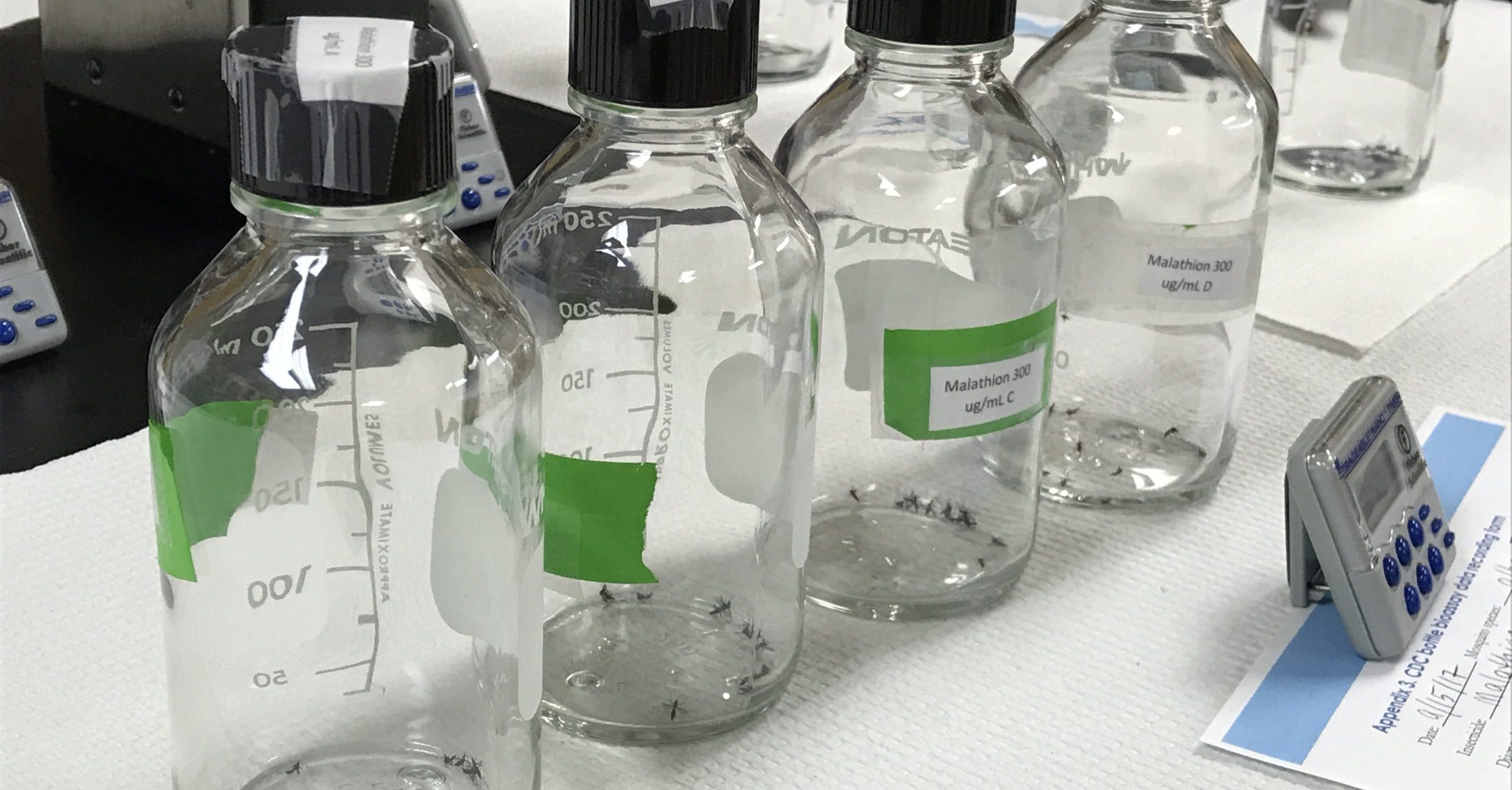Richards SL, Byrd BD, Reiskind MH and White AV (2020). Assessing Insecticide Resistance in Adult Mosquitoes: Perspectives on Current Methods. Environmental Health Insights 14: 1-7. doi:10.1177/1178630220952790
Abstract
Mosquito insecticide resistance (IR) is a growing global issue that must be addressed to protect public health. Vector control programs (VCPs) should regularly monitor local mosquito populations for IR and plan control measures accordingly. In some cases, state/federal resources financially support this testing with expertise and/or training programs. Standardization of methods (eg, Centers for Disease Control and Prevention bottle bioassay, World Health Organization tube testing, dose-mortality bioassay) for monitoring IR must be prioritized. One solution is regional hubs of IR monitoring at the state or other level. Training programs on methodology and interpretation of results should be developed and routinely offered to local VCPs conducting IR testing in mosquitoes. Here, current methods for assessing mosquito IR are discussed and insights into a variety of questions from VCPs are considered. It is critical that methods for IR monitoring and data interpretation are standardized through routine training, with the goal of evidence-driven decision making to improve control of mosquitoes and mosquito-borne disease.

